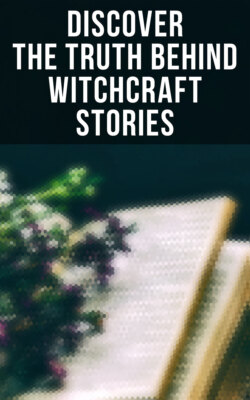Читать книгу Discover the Truth Behind Witchcraft Stories - William Godwin - Страница 82
На сайте Литреса книга снята с продажи.
Sylphs and Gnomes, Salamanders and Undines.
ОглавлениеBut that for which they principally excited public attention, was their creed respecting certain elementary beings, which to grosser eyes are invisible, but were familiarly known to the initiated. To be admitted to their acquaintance it was previously necessary that the organs of human sight should be purged by the universal medicine, and that certain glass globes should be chemically prepared with one or other of the four elements, and for one month exposed to the beams of the sun. These preliminary steps being taken, the initiated immediately had a sight of innumerable beings of a luminous substance, but of thin and evanescent structure, that people the elements on all sides of us. Those who inhabited the air were called Sylphs; and those who dwelt in the earth bore the name of Gnomes; such as peopled the fire were Salamanders; and those who made their home in the waters were Undines. Each class appears to have had an extensive power in the elements to which they belonged. They could raise tempests in the air, and storms at sea, shake the earth, and alarm the inhabitants of the globe with the sight of devouring flames. These appear however to have been more formidable in appearance than in reality. And the whole race was subordinate to man, and particularly subject to the initiated. The gnomes, inhabitants of the earth and the mines, liberally supplied to the human beings with whom they conversed, the hidden treasures over which they presided. The four classes were some of them male, and some female; but the female sex seems to have preponderated in all.
These elementary beings, we are told, were by their constitution more long-lived than man, but with this essential disadvantage, that at death they wholly ceased to exist. In the mean time they were inspired with an earnest desire for immortality; and there was one way left for them, by which this desire might be gratified. If they were so happy as to awaken in any of the initiated a passion the end of which was marriage, then the sylph who became the bride of a virtuous man, followed his nature, and became immortal; while on the other hand, if she united herself to an immoral being and a profligate, the husband followed the law of the wife, and was rendered entirely mortal. The initiated however were required, as a condition to their being admitted into the secrets of the order, to engage themselves in a vow of perpetual chastity as to women. And they were abundantly rewarded by the probability of being united to a sylph, a gnome, a salamander, or an undine, any one of whom was inexpressibly more enchanting than the most beautiful woman, in addition to which her charms were in a manner perpetual, while a wife of our own nature is in a short time destined to wrinkles, and all the other disadvantages of old age. The initiated of course enjoyed a beatitude infinitely greater than that which falls to the lot of ordinary mortals, being conscious of a perpetual commerce with these wonderful beings from whose society the vulgar are debarred, and having such associates unintermittedly anxious to perform their behests, and anticipate their desires. 4
We should have taken but an imperfect survey of the lawless extravagancies of human imagination, if we had not included a survey of this sect. There is something particularly soothing to the fancy of an erratic mind, in the conception of being conversant with a race of beings the very existence of which is unperceived by ordinary mortals, and thus entering into an infinitely numerous and variegated society, even when we are apparently swallowed up in entire solitude.
The Rosicrucians are further entitled to our special notice, as their tenets have had the good fortune to furnish Pope with the beautiful machinery with which he has adorned the Rape of the Lock. There is also, of much later date, a wild and poetical fiction for which we are indebted to the same source, called Undine, from the pen of Lamotte Fouquet.
1. Joshua, vii. 16, et seq.
2. De Arte Poetica, v. 150.
3. Romans, xi. 32.
4. Comte de Gabalis.
